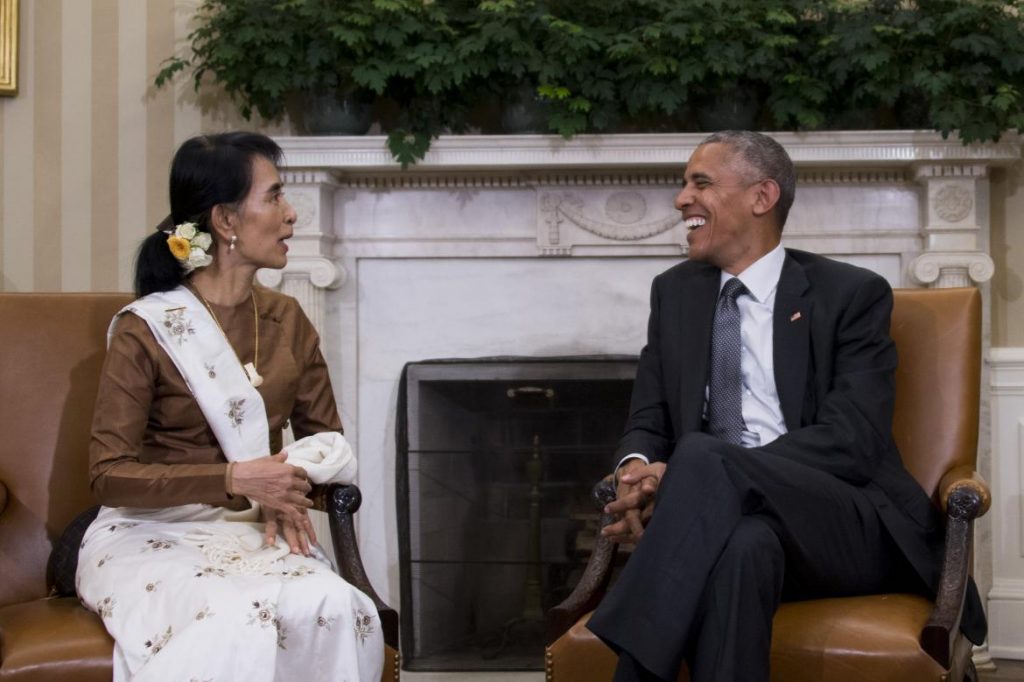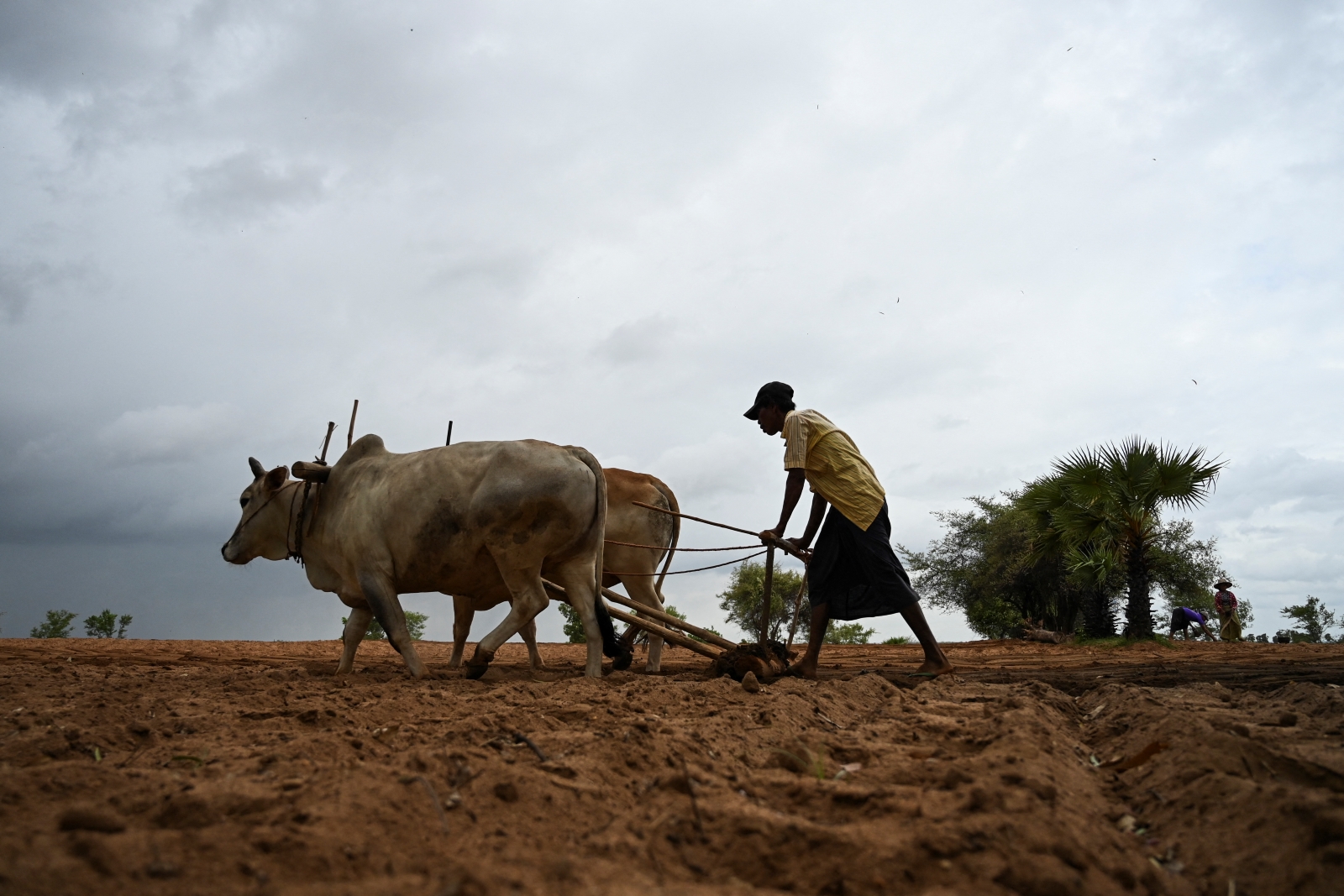By SEAN GLEESON | FRONTIER
YANGON — United States Ambassador Scot Marciel has defended the Obama administration’s decision to lift remaining economic sanctions against Myanmar, telling an audience Tuesday that continued restrictions against tycoons and junta figures would undermine the country’s economic growth.
Ambassador Marciel told reporters at the US Embassy that his government had concluded the executive sanctions regime had run its course, and the time had come for a policy shift toward greater encouragement of economic growth.
“What we saw was that maintaining sanctions was imposing a cost on Myanmar. The sanctions were discouraging investment, not only by the US but a lot of international countries,” he said.
“When we look at how to best support the democratic transition, we have to weigh the costs of maintaining the sanctions — and there are some — versus the cost of lifting them. And we felt really that the cost of maintaining the sanctions was greater than the cost of lifting them.”
Support more independent journalism like this. Sign up to be a Frontier member.
President Barack Obama’s September 14 announcement foreshadows the end of US Treasury sanctions against 38 individuals and 73 associated firms and political entities — largely former senior members of the State Peace and Development Council, business figures close to the former military regime and their companies.
The Obama administration will also restore preferential trade terms to Myanmar under exemptions from World Trade Organization rules for developing countries, known as the Generalised System of Preferences.
Human rights groups however had condemned the decision to terminate the sanctions program, claiming the decision amounted to the abandonment of leverage needed to coerce the military into further democratic reforms and a clean-up of Myanmar’s notorious jade trade.
Congressional sanctions remain in place to ban arms sales to Myanmar and to prevent former and serving military personnel from travelling to the US.
Marciel said the US government would maintain a policy of “cautious” and tentative engagement with armed forces, and would not engage in any military-to-military without the approval of Myanmar’s civilian government.
While the US plans to upscale its economic commitments across the board, including in the fields of education, healthcare and economic investment, Marciel said the US government would continue to advocate for further political reform.
“The democratic transition is still not over and there’s still a lot of work to do,” he said. “For this democratic transition to succeed, we all know that a lot of political developments have to happen. But just as importantly, there has do be broad-based economic growth. Democracy has to deliver a real dividend for the people.”
Tuesday’s press conference also saw a signing ceremony between the United States Agency for International Development and several local microfinance initiatives.
USAID has pledged to provide technical assistance and underwrite $10 million worth of small business loans in the agriculture sector







